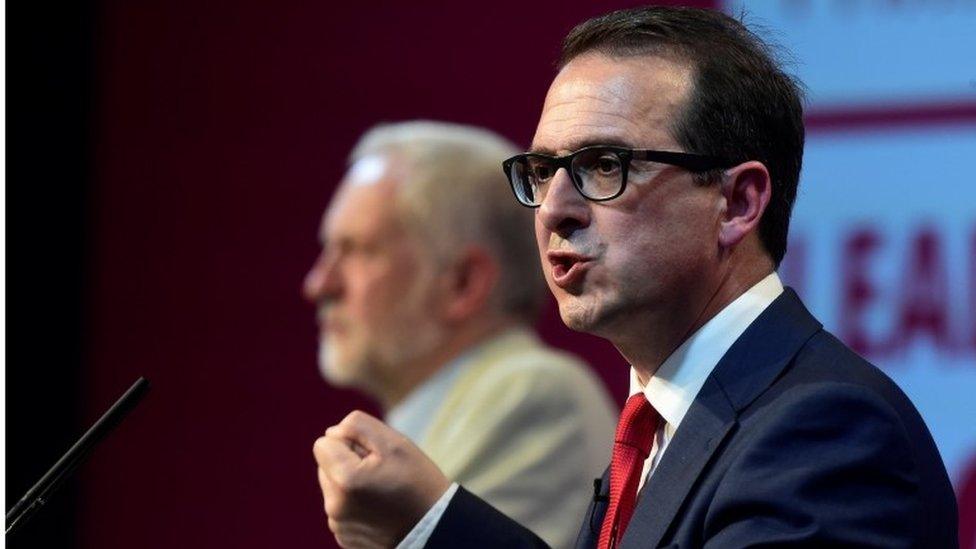Private providers in the NHS - the debate reignites
- Published

It was much talked about in the run-up to the 2015 General Election and then it disappeared from the political radar screen. But the involvement of private companies in the national health service in England has been pushed back onto the agenda by Owen Smith as part of his bid for the Labour leadership.
Mr Smith said that a public NHS which was 100% publicly-funded was an "absolute red line". He alleged the Government and NHS leaders had "secret plans" to increase private provision and the amount spent on private healthcare companies had increased dramatically under the Conservatives. This could involve, for example, private hospitals carrying out routine surgery to help reduce waiting lists or private groups taking on community health contracts.
The political left has argued for some time that the coalition government's health reforms in 2012 opened the door to private sector organisations to cherry-pick NHS contracts. Mr Smith with his pitch to be party leader has attempted to tap that belief, which is felt strongly across the Labour grassroots.
Mr Smith's team have dug out some interesting figures from the Department of Health's annual report and accounts. The Department had said that 6.3% of the NHS budget in England was spent on private health provision in 2014/15. Now that's been revised up to 7.3% owing to an NHS England review of the figures and the correction of some "categorisations". This has fuelled Labour suspicions of a cover-up, though Whitehall sources deny any deliberate understating of the figure.

The DH report says that the use of private health provision had increased to 7.6% in 2015/16. This compares with a figure of 4.9% in 2010/11, the first year of the coalition government. This is the basis of Labour's claim of a big increase in privatisation under the Conservatives. Government sources, though, say there was a significant rise in under Labour when private hospitals were first used to help cut waiting lists. Back in 2006/07, the use of private health provision was just 2.8%.
Mr Smith's claim of a secret plan to boost private provision is based on a document 'Business plan 2016/17', published by the financial regulator NHS Improvement. This listed one of the main priorities: "explore and, where appropriate, facilitate independent sector providers to form NHS partnerships that deliver improvement across the sector. " The Labour MP argued this, along with references to outsourcing, was proof of a plan to widen the involvement of the private sector.
For its part NHS Improvement, apart from pointing out that it was hardly a secret document as it appeared on an official website, argued there was no hidden agenda. The quoted sentence referred, apparently, to attempts to help NHS trusts run joint ventures with private providers to reduce waiting lists for routine surgery.
Ministers argue that local commissioning groups deciding to award contracts to private health contractors is a matter for them and should not be discouraged if they offer value for money to taxpayers. But Owen Smith has revived the contentious debate over the steady increase in private provision in the NHS and whether it should be curbed or reduced.